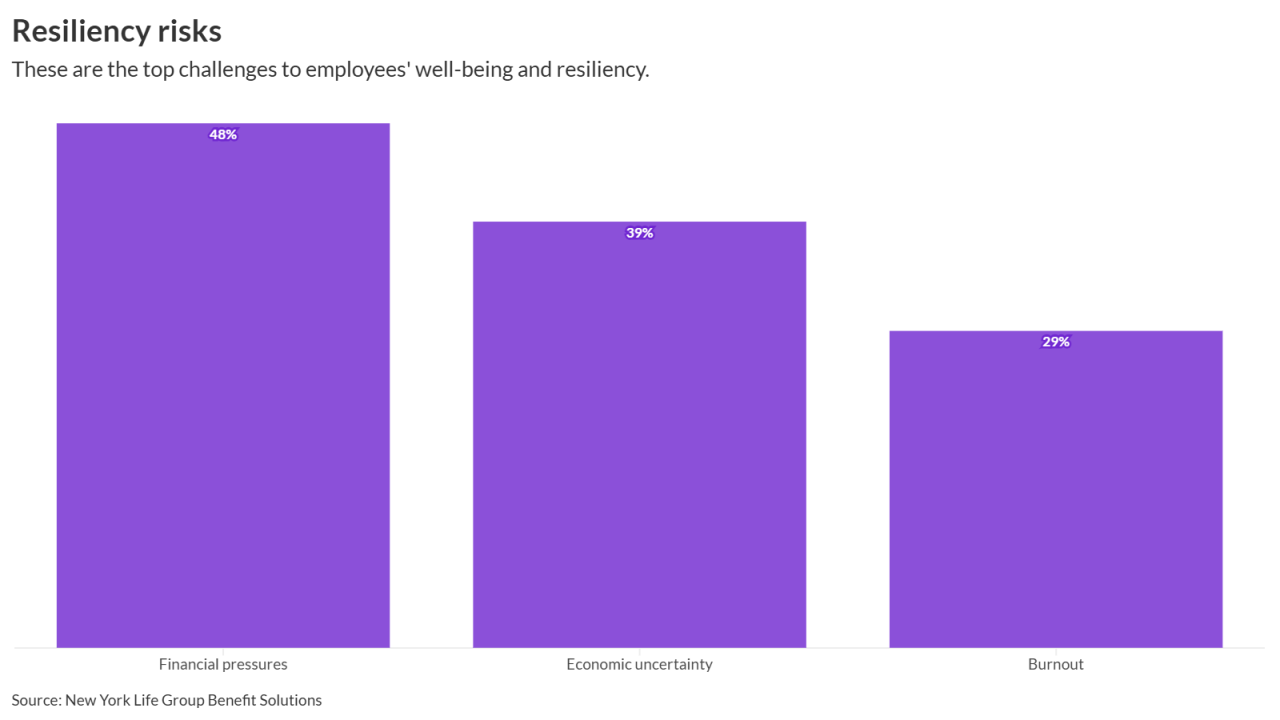There is yet another misinformed debate about millennials —they don’t care about saving for retirement.
The conventional perspective is that millennials aren’t planning for the future; they’re happy to sacrifice financial stability for in-the-moment living. Data to back up that opinion is mostly from surveys that track how members of that generation feel, not what they do. Many of those surveys present millennial data in isolation versus compare it to cross-generational data.
Contrary to popular belief, however, retirement planning is important to this generation. But like all employees, millennials need support and education.
A Pew

Millennials overwhelmingly believe that people will no longer retire comfortably in the future, a study from PGIM investments says. They’re basing retirement on when they have enough wealth, not on a specific age. Millennials know they’re heading into an uncertain financial future.
It shouldn’t be so shocking that this generation is worried about retirement. Student loan debt is up to $1.5 trillion, dragging down millennial home ownership. This generation accounts for an alarming share of medical debt and social security will be insolvent by 2034, unless millennials work more years or pay higher taxes.
Millennials do want to hear about your retirement plan. Helping them understand these programs does differentiate you in the talent marketplace. What and how you communicate it is the issue.
I think of the employment lifecycle as three Os: onboarding, on-going and offboarding. Say your goal is to raise millennial participation in your 401(k). What works?
Onboarding. Introduce the plan as part of new employee orientation. Cover what the company offers, the logistics of enrollment and the fund options. Do you match contributions? Say so. Also mention that enrollees won’t have to pay tax on their contributions until they retire.
No one will rush to sign up. If you have new employees starting in November or December, they’d have to enroll ASAP and then contribute relatively more to their 401(k) in less time to get the most of your matching contribution.
On-going. Send out quarterly reminders to practice 401(k) hygiene, like rebalancing investments or upping the contribution following a raise. Provide information on how the funds are performing. Ideally, your fund manager will provide that information. If not, take charge of communicating it.
Offboarding. Understandably, employees aren’t sure what to do with retirement accounts when they depart. They can leave it with the current fund manager, move it to an IRA or transfer the funds to the next employer’s 401(k) manager. Put these options and actions steps in an exit checklist — ideally, one that’s digital.
Information is cheap. Those who offer good information are up against social media, blogs, instant messages and unwelcome popup ads. In response, HR is forced to treat retirement plans like a product and promote them through marketing campaigns.
Here’s the key: Differentiate between what millennials value and how our information environment stunts their aspirations. In a digital culture where everyone has become a mass communicator, it’s hard to focus on what’s important. We’re all talented at distracting each other.
If you’re seeing lackluster enrollment in retirement plans, it’s probably not because of millennial apathy. They came of age in unstable economic times and feel betrayed by our financial system. It might take persistence to earn both their attention and trust.




